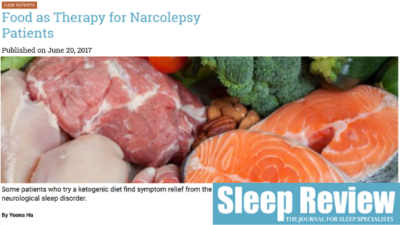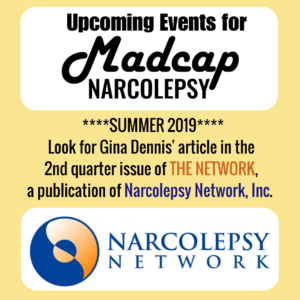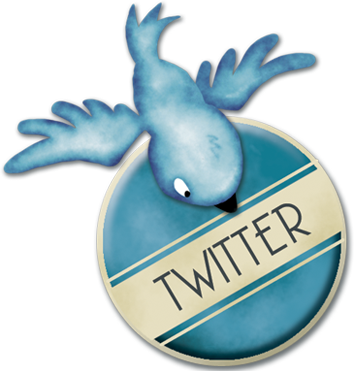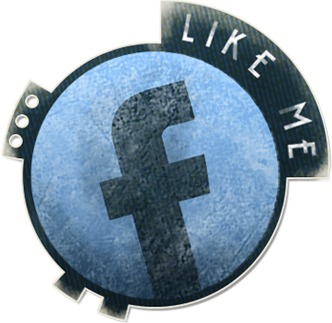I’m so ecstatic to share Sleep Review Journal’s article “Food as Therapy for Narcolepsy Patients” that was published yesterday. This article highlights the journey my family and I have taken to find non-traditional ways of managing our narcolepsy symptoms.
Sleep Review is a journal for sleep specialists so when the author Yoona Ha interviewed me for the article several weeks ago I felt this dream to share how my family and I mitigate our narcolepsy symptoms via diet was finally being recognized on a larger scale. What began as a teeny tiny dream and a blog six years ago has now become a full on, professional platform from which I’m able to help others with narcolepsy.
Since founding Madcap Narcolepsy, LLC last April, I’ve been honored to speak at the 2016 Narcolepsy Network Conference, be the keynote speaker at Ireland’s Suddenly Sleepy Saturday event this past March, and now to have been interviewed for this article in a journal for sleep specialists. Truly, the word “honored” really can’t come close to how I’m feeling. And the year is nowhere near done…there’s so much more in the works so stay tuned as I begin to lay out a path for making the dietary changes I speak of AND some really exciting news that I’ll share soon.
Please join me in spreading the word about using diet to mitigate narcolepsy symptoms by sharing this Sleep Review article with friends and family.
Thank you so much for your support!
Your Madcap Miss (a.k.a. Gina Dennis)
Let me be totally up front here…I AM NOT A DOCTOR, nor am I a nutritionist, I only have a tiny amount of formal training in such things as a Health Coach. But I am a person with narcolepsy who uses dietary and lifestyle changes to mitigate my narcolepsy symptoms. I’ve been experimenting with these changes since July 2011 and have successfully maintained a high level of narcolepsy symptom management since that date. And so has my family with narcolepsy. This website contains our personal stories, failures, and experiments. In this website I will share with you the information that I have found most credible and some practical ideas for mitigating narcolepsy symptoms. I beg you to check with your doctor before initiating any of the dietary changes I speak of, especially if you are taking any medications.






I love your colorful Web site! I landed here after watching the YouTube video of your speech at last year’s Narcolepsy Network confab. Congratulations!
As you know, much of your diet parallels research by Husain, Yancy, et. al. at Duke University. (Dr. Yancy later applied the same ketogenic diet to diabetics, with similar success.) You seem to mention that research (but not explicitly) in your talk.
With my Wakeup Diet program, I’m on a somewhat similar track. My narcolepsy and cataplexy arose during early childhood. During secondary school in 1966, I started my research. This work continued through college and graduate school. (Those dreamy lectures. Ugh!) Through self-experimentation, I slowly pieced together a diet. Much of my research came well before my narcolepsy diagnosis (1979). When narcolepsy medications worsened my symptoms, I quit the meds and redoubled my dietary experiments.
I’ve been on a circadian diet and exercise program since 1992 (and precursors to that even earlier). The low-carbohydrate, low-fat, high-protein diet drastically reduces all narcolepsy and cataplexy symptoms. (The program *isn’t* ketogenic, but does involve brief fasts.) The exercise periods pin wakefulness and sleepiness to appropriate times. Reintroduction of carbs and fats in the evening encourages deep, refreshing sleep.
There is no “morning hangover.” The cost is minimal. (Even less, when one considers that good food and twice daily exercise puts one on the road to health.) The diet eliminates problems with addiction to caffeine, sugar, or narcolepsy medications: All are taboos. My diet emphasizes the establishment and maintenance of normal circadian rhythms. (A prescription from Dr. Charles Ehret’s circadian book that I adopted whole-heartedly.) I wrote an article on the Wakeup Diet for Narcolepsy Network in Spring, 2013. The Web site http://www.wakeupdiet.com gives more details (and an article PDF).
I can’t make substantial use of your “fats during the day” principle. I know, fats and ketones. Fine science. But there’s more at work: Fats slow the digestion, prolonging my listlessness. This is my reason for reducing fats during working hours.
Why not coffee, tea, caffeine pills, etc.? Because they upset the circadian rhythms. I want to provide an even energy level all day: Not peaks and valleys as with caffeine. Not a rollover of today’s fragmented sleep into yet another day. Plus, coffee drinkers crave sweets: And these sweets are all junk carbs. I don’t want to pay the other costs of caffeine and stimulants: Rapid skin aging. Stained teeth. Heart arrhythmia. Indigestion. The shakes. Balance problems. Adrenal fatigue. GERD. Confusion. Hemorrhoids. Visual distortions. Osteoporosis. Sleep difficulties, since nobody knows when caffeine, etc. will wear off this time.
I’m not gluten-free, but my low-carb regimen eliminates most carbohydrates during the day. Of course, typical carbs (like wheat bread) often include gluten proteins. Paradoxically, I’ve found that theoretically gluten-free breads such as oats, rice, buckwheat, and particularly amaranth are sleeping pills nonetheless. At night, I use them for that purpose. (Ha, ha: A cheap Xyrem substitute!) My blood test for gluten sensitivity also came out negative.
Email from others who have undertaken the Wakeup Diet is most encouraging. I’m sure that you share my pride when you hear about others’ success with narcolepsy dieting.
Thank you James! I remember coming across your website 6 years ago when I changed my diet. I thought it was a crazy thought but finding your site and a few others, and yes, the research by Husain as well, led me to think it was worth a try. Thank you for being a pioneer in this. Your work is greatly appreciated.